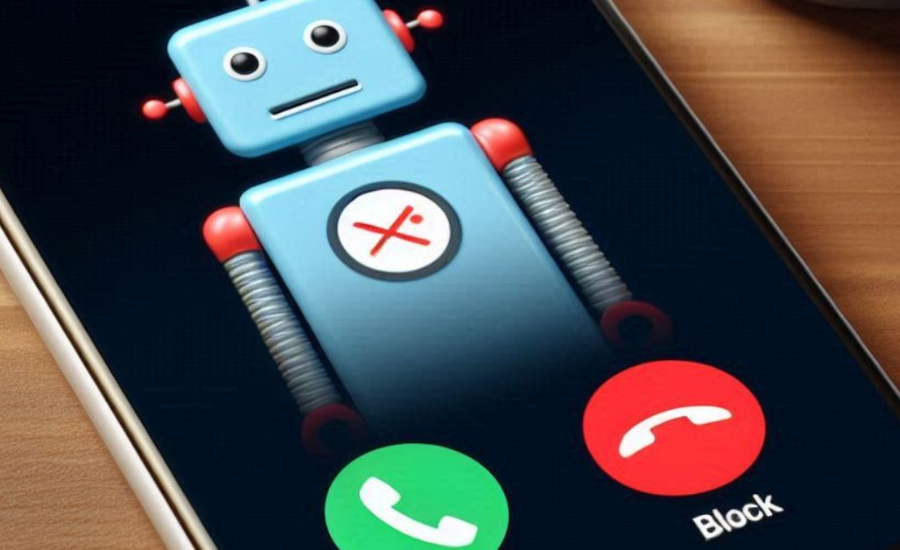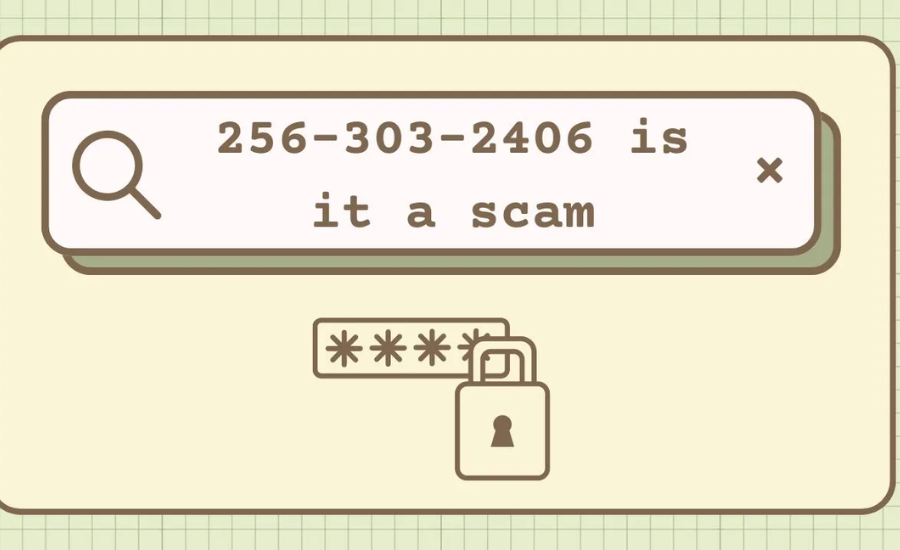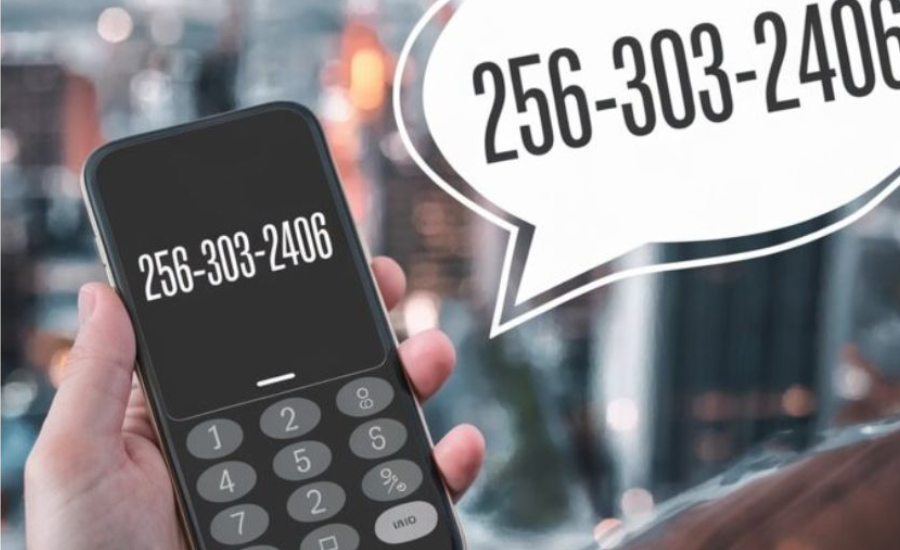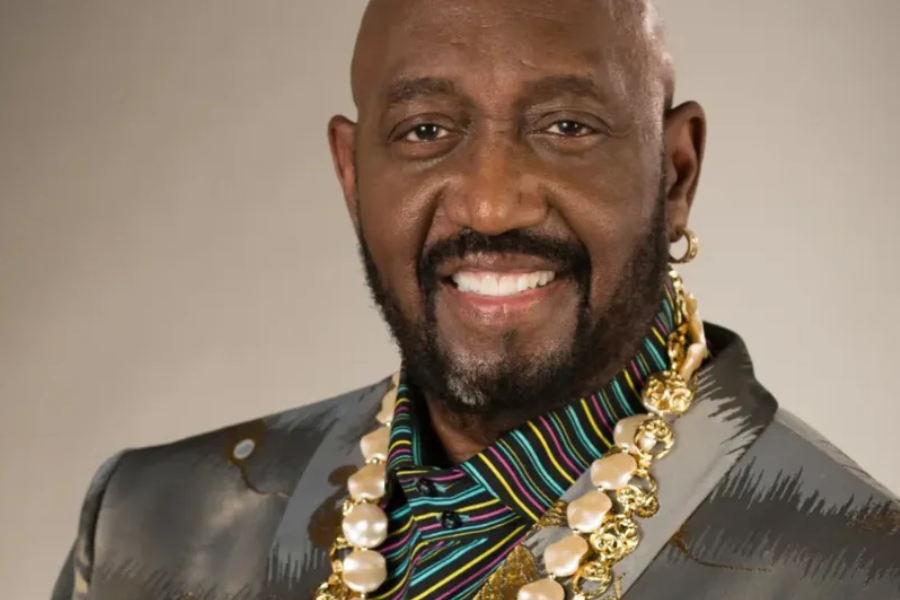In today’s world, where phone scams and fraud are on the rise, recognizing suspicious numbers is crucial to avoid falling victim to deceitful tactics. One such number that has sparked concern is 256-303-2406 is it a scam. Many people have reported receiving unsolicited calls from this number, leading to questions about its authenticity.
This article aims to answer the question: 256-303-2406 is it a scam? We will delve into the nature of these calls, share real user experiences, highlight common phone scams, and offer practical advice on protecting yourself.
256-303-2406 Is It A Scam? Analyzing The Red Flags

To determine whether 256-303-2406 is linked to fraudulent activities, it’s important to start by understanding its origin. This phone number carries the 256 area code, which serves parts of Alabama. While many legitimate businesses and individuals operate under this code, scammers often engage in “spoofing” – a tactic where they disguise their identity by making it appear that they are calling from a trusted, local number.
By impersonating a nearby contact, scammers increase the chances that people will answer the call. But 256-303-2406 is it a scam, or just another number? The answer lies in the pattern of behavior reported by individuals who have received calls from this number.
User Experiences With 256-303-2406: A Closer Look

Many users have reported troubling interactions with 256-303-2406 is it a scam, claiming the calls were not only unsolicited but also aggressive. Some mentioned being pressured to participate in surveys or promotional schemes. Others described receiving suspicious offers for services like extended car warranties or credit card debt relief.
In several cases, the callers allegedly demanded personal information or even threatened legal action if payments were not made. These experiences align with common scam tactics, where fraudsters use fear, urgency, or fake rewards to manipulate their victims.
What makes these encounters concerning is how quickly the callers disconnected the call if the recipient asked too many questions or hesitated. Such behavior is often a red flag, suggesting that the person on the other end may be engaged in deceptive practices.
If you’ve received a call from 256-303-2406 and the conversation feels suspicious, it’s essential to hang up immediately, block the number, and report the incident to prevent further contact.
256-303-2406 Is It A Scam? Recognizing Common Phone Scams
Phone scams can take various forms, and it’s important to recognize their patterns. Here are some typical scams that individuals have reported when receiving calls from numbers like 256-303-2406:
1. Identity Theft Scam
In this scam, the caller pretends to represent a bank, government agency, or business, asking for sensitive details like Social Security numbers or bank account information. Their goal is to steal your identity or access your financial accounts.
2. Lottery and Prize Scams
Callers may falsely claim that you’ve won a lottery or prize but demand payment for taxes or processing fees upfront. This tactic exploits excitement to trick victims into sending money.
3. Debt Relief or Warranty Scams
These scams involve offers to resolve outstanding debts or provide extended warranties for vehicles. However, the goal is to extract payment or personal information under false pretenses.
4. Robocall Scams
Automated calls are often used to deliver pre-recorded messages, urging recipients to press a button for more information. These messages may lead to phishing scams designed to steal personal data.
How To Spot A Scam Call From 256-303-2406
Scam calls can be tricky to identify, but certain behaviors and patterns should raise your suspicion. Here are some warning signs to help you determine if 256-303-2406 is a scam:
- Unfamiliar Caller: Be cautious when receiving calls from numbers you don’t recognize, especially if the caller avoids sharing clear information about their identity or purpose.
- Pressure to Act Quickly: Scammers often create a sense of urgency, claiming you need to act immediately to avoid consequences.
- High-Pressure Sales Tactics: Legitimate businesses will not push you to make immediate decisions over the phone.
- Threatening Language: If the caller uses intimidating language or threatens legal action, it’s likely a scam.
- Offers Too Good to Be True: Be wary of offers that sound overly generous or require you to pay fees upfront.
When in doubt, it’s always safer to hang up, block the number, and do some research before taking any further steps.
256-303-2406 Is It A Scam? Reporting Suspicious Calls
If you believe that 256-303-2406 or any other number is linked to a scam, reporting it can help prevent others from being targeted. In the United States, you can take the following steps:
- Report to the Federal Trade Commission (FTC)
Visit the FTC’s online complaint assistant to file a report about unwanted or fraudulent calls. The FTC actively investigates such reports and works to shut down scams. - Register with the National Do Not Call Registry
Adding your phone number to the National Do Not Call Registry helps limit telemarketing calls. If a company still contacts you after you’ve registered, it could indicate fraudulent activity. - Inform Your Phone Carrier
Many phone carriers provide tools to block or report scam calls. Reporting the number to your carrier can help them take action against unwanted calls. - Contact Your State Attorney General’s Office
Some states offer resources for handling scam calls, including hotlines and fraud reporting services. Your attorney general’s office can provide additional support in combating fraudulent activity.
Protecting Yourself From Future Scams
While receiving suspicious calls can be unsettling, there are steps you can take to protect yourself. Here are some tips for avoiding phone scams:
- Use Call Blocking Apps: Many apps are designed to detect and block scam calls automatically.
- Don’t Share Personal Information: Never provide sensitive information over the phone unless you initiated the call and know the recipient.
- Verify Claims Independently: If someone claims to represent a company or government agency, hang up and call the organization directly using their official contact information.
- Trust Your Instincts: If a call feels off or too good to be true, it’s better to err on the side of caution.
- Stay Informed: Keep up with the latest scam alerts by checking websites like the Better Business Bureau (BBB) or the FTC for updates.
FAQs About 256-303-2406 Is It A Scam?
Q1: What should I do if I get a call from 256-303-2406?
A: Hang up immediately if it feels suspicious. Avoid giving any personal information and block the number to prevent future calls.
Q2: How can I tell if it’s a scam?
A: Watch for signs like high-pressure tactics, requests for personal information, threatening language, or offers that sound too good to be true.
Q3: Why do scammers use local numbers like this?
A: Scammers use “spoofing” to make the call appear local, increasing the chance people will answer.
Q4: How do I block the number?
A: On Android, tap the number in your call history and select “Block.” On iPhone, go to recent calls, tap the “i” icon, and choose “Block this Caller.”
Q5: Where can I report scam calls?
A: Report them to the FTC, your phone carrier, the National Do Not Call Registry, or your state’s attorney general.
Q6: Are all calls from 256-303-2406 scams?
A: Not necessarily, but unsolicited calls from this number should be treated with caution.
Q7: Can scam calls lead to financial loss?
A: Yes, scammers may try to steal your financial details or money through fake offers or threats.
Q8: What if I accidentally shared personal information?
A: Contact your bank immediately to secure your accounts, report the issue to the FTC, and monitor for suspicious activity.
Conclusion: Stay Vigilant Against Suspicious Calls from 256-303-2406
In today’s world, where phone scams are on the rise, it’s essential to exercise caution when answering calls from unknown numbers like 256-303-2406 is it a scam. Many people have reported aggressive tactics, unsolicited offers, and requests for personal information linked to this number, indicating it may be part of a scam.
To safeguard yourself, stay alert. If a call feels off, it’s best to hang up and block the number immediately. You can also register your number with the National Do Not Call Registry and report any suspicious calls to the Federal Trade Commission (FTC) or your phone carrier. Scammers often use fear, confusion, or a sense of urgency to manipulate their victims, so it’s important to take a moment to think, do your research, and trust your instincts. By remaining informed and reporting scam calls, you help protect not only yourself but also others from falling victim to fraud.
Get the latest alerts and updates directly: Tribune Breaking!







